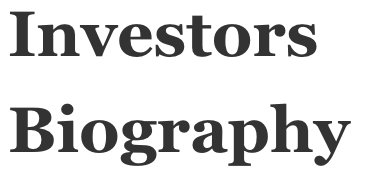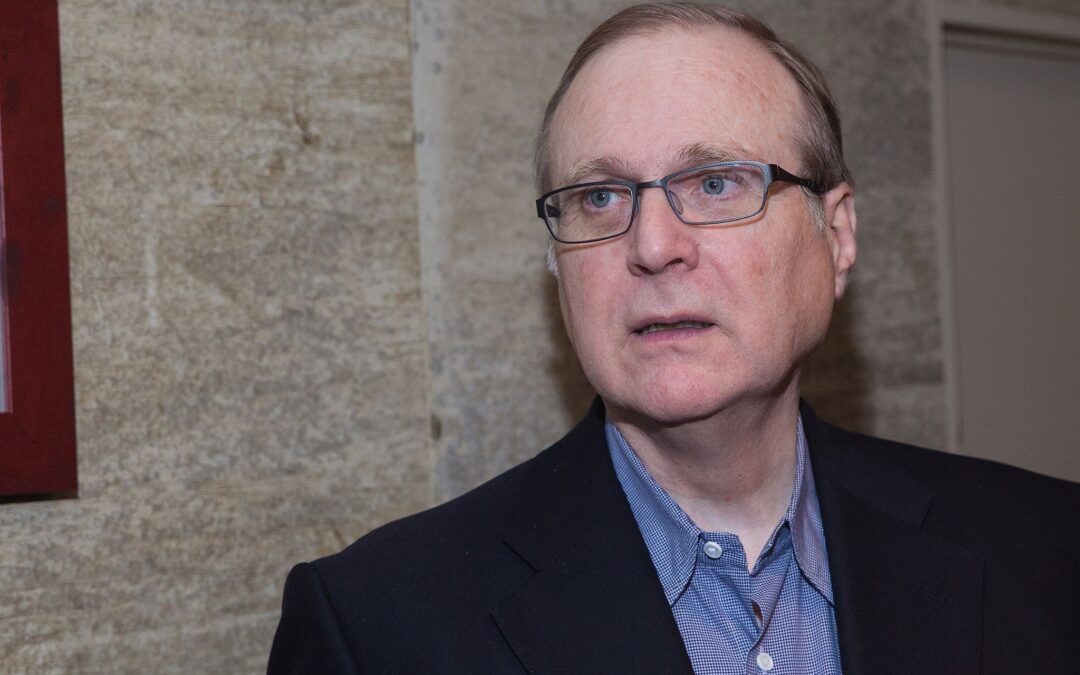Paul Allen became a billionaire after founding Microsoft with childhood friend Bill Gates. After leaving the company in 1983, he spent the rest of his life pursuing diverse interests, from buying professional sports teams to giving away his wealth to charity.
Early Life
Paul Gardner Allen was born on January 21, 1953, in Seattle, Washington. The son of a librarian father and teacher mother, he was raised in Seattle and attended the prestigious Lakeside School.
While attending Lakeside, Allen met Bill Gates. The pair bonded over their fascination with computers, and together they would sneak into a University of Washington building that housed a mainframe computer. Gates, who was two years younger than Allen, says he admired his friend’s polymathic knowledge and for his vision of what computing could be.
While still in high school, Allen articulated his belief that ever more powerful computer chips would spur the creation of an entirely new industry. Later, he predicted both the development of the personal computer and the rise of the internet.
Drawing on their programing skills, Allen and Gates established their first venture while still at Lakeside. Traf-O-Data, a business that measured traffic data, eventually failed. However, Allen says the experience was crucial to the success of their next, more famous company.
College and Early Career
After graduating from high school, Allen attended college at Washington State University. He studied there for two years before dropping out to take a job as a computer programmer at Honeywell Inc. The position, which was based in the Boston area, brought him closer to Gates, who was studying at nearby Harvard University.
With Allen certain that computers were the future, he persuaded his friend to partner with him on writing software for the first microcomputers. They later adapted the software for the Altair microcomputer. When Allen moved to Albuquerque, New Mexico, to serve as vice president and software director for Altair’s manufacturer, Gates followed.
Microsoft
It was in Albuquerque that, in 1975, Allen and Gates founded Micro-Soft (a portmanteau of “microcomputer” and “software”). They changed the name to “Microsoft” the following year.
Allen served as Microsoft’s chief technologist for eight years. During that time, he made vital contributions to highly successful products like MS-DOS and Word. His reputation for big ideas paired well with Gates’ execution and business instincts.
Despite the pair’s success, their friendship deteriorated after Allen learned that Gates was attempting to dilute his stake in the company. Allen, who had recently been diagnosed with Hodgkin’s lymphoma, left Microsoft the following year.
Sports
Allen’s 28 percent ownership of Microsoft, where he would remain a board member until 2000, made him a millionaire many times over when the company went public in 1986. (His fortune later grew into the tens of billions.) In the same year, he established a holding company, Vulcan Inc., to manage his wealth.
Among his first investments was the 1989 purchase of the NBA’s Portland Trail Blazers. Nine years later, when the then-owner of the Seattle Seahawks was looking to move the NFL franchise to Los Angeles, Allen stepped in and bought his hometown team. Allen became a local hero for keeping the Seahawks in the city. He added to his sports holdings in 1997, when he became a part owner of Seattle’s Major League Soccer team, the Sounders.
Music and Culture
Beyond sports, Allen was active in expanding Seattle’s cultural footprint. An avid guitar player who idolized Jimi Hendrix, he spent $250 million to establish the Experience Music Project (EMP), an interactive museum opened in 2000. He later founded the Allen Science Fiction Museum and Hall of Fame. (Both institutions now constitute the Museum of Pop Culture.)
Allen’s passion for music also saw him create the Upstream Music Fest + Summit. Launched in 2017, the annual Seattle event went on to attract more than 30,000 people. He also generously supported Seattle public radio station KEXP and established a hip-hop arts residency for the city’s young residents.
Real Estate
In the ’90s, Allen attempted to give back to Seattle in another way when he endeavored to create a public park in the South Lake Union neighborhood. The ambitious project saw him acquire 11.5 of acres of property through Vulcan’s real estate arm. Allen intended to donate the property for the creation of the park, but the city’s residents twice voted down the redevelopment plan.
Allen responded by buying even more real estate in South Lake Union. In 2007, with his holdings totaling 60 acres, it was announced that Amazon would have its headquarters built in the neighborhood, with Vulcan undertaking the construction. The headquarters would grow to become the country’s largest urban corporate campus.
Charity
Through the Paul G. Allen Family Foundation (since renamed Paul G. Allen Philanthropies), Allen gave at least $1.5 billion over his lifetime to various causes. Among these was a housing development in South Seattle that he hoped would help to alleviate the rising tide of homelessness in his home city.
Allen’s commitment to philanthropy saw him sign the Giving Pledge, a program cocreated by his childhood friend Bill Gates. In becoming a signatory of the pledge, he promised to give away the bulk of his fortune to charity. In 2015, three years before his death from cancer complications, Allen was honored with the Carnegie Medal of Philanthropy.

